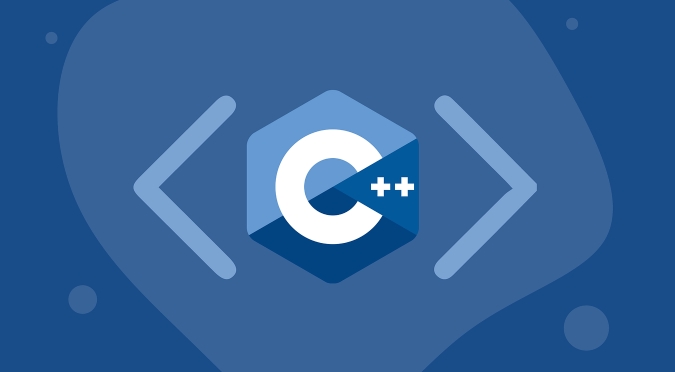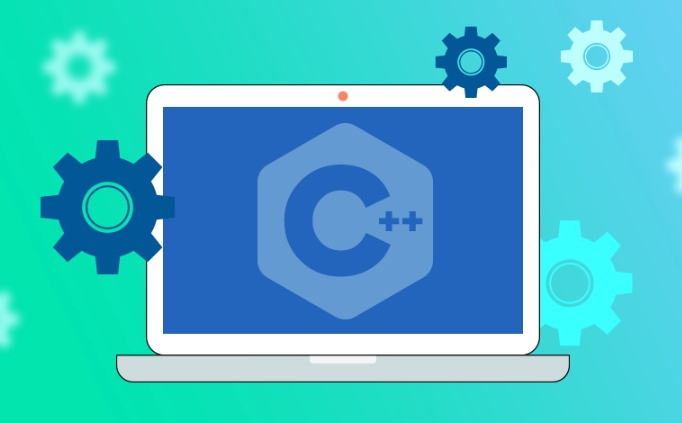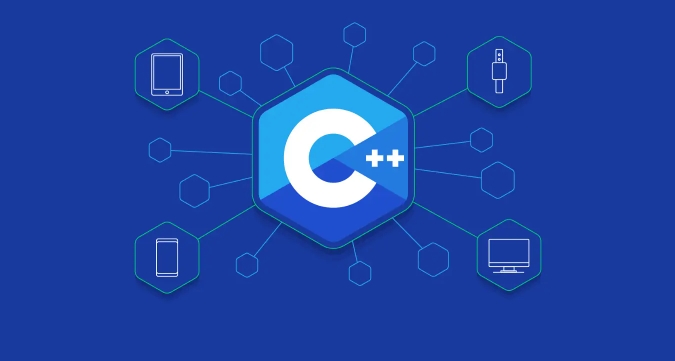Modules are better than header files because they solve problems such as duplicate inclusion, slow compilation speed, and macro pollution. 1. Modules adopts a mechanism of compiling once and importing multiple times, avoiding the problem of re-parsing header files every time they are compiled, improving construction efficiency; 2. The modules are naturally isolated from interfaces and implementations, reducing naming conflicts and unnecessary symbol exposure. Writing a simple module requires an interface unit and an implementation unit: 1. The interface unit starts with export module name; and exports the declaration; 2. The implementation unit starts with module name; and contains specific implementation code. Note when using modules: 1. The module interface must be compiled before the code that references it; 2. The existing header file code base cannot be directly converted, and the migration cost is high; 3. There are differences in support from different compilers, and some characteristics may be unstable. In the short term, header files will still be mainstream, but as the tool chain is improved, modules will gradually replace header files and become the mainstream method.

C 20 introduces modules, a major improvement to the traditional header file mechanism. It solves multiple problems caused by header files, such as duplicate inclusion, slow compilation speed and macro pollution. Although header files have been used for a long time in the development of C, the emergence of modules has made the code organization clearer and faster to build.

Why are modules better than header files?
Traditional header files copy content through #include preprocessing directives, which is simple but inefficient. The header file contents must be re-parsed every time the compilation is completed, resulting in the compilation time of large projects becoming longer. modules are a mechanism for compiling once and importing multiple times, avoiding repeated parsing.

In addition, header files are prone to naming conflicts, especially macro definitions. The module naturally isolates the interface and implementation, and does not expose unnecessary symbols.
How to write a simple module?
The basic structure of a writing module includes module interface unit and implementation unit:

- Interface unit : Start with
export module name;and declares exportable content. - Implementation unit : Start with
module name;including specific implementations.
For example:
// math.ixx (interface unit)
export module math;
export int add(int a, int b);
// math.cpp (implementation unit)
module math;
int add(int a, int b) {
return ab;
}Then other files can be used like this:
import math;
int main() {
return add(1, 2);
} Note that module files usually use .ixx or .cppm extensions (depending on the compiler), and require compilers that support C 20 such as MSVC or GCC 11.
What should you pay attention to when using modules?
- There are some requirements for the compilation order : the module interface must be compiled before the code that references it. Otherwise, the module will not be found.
- Incompatible with old code : There are already a large number of header file-based code libraries that cannot be directly converted into modules, and the migration cost is high.
- There are slight differences in support for different compilers : GCC and Clang support for modules is still being improved, and some features may be unstable.
It is recommended to start with new projects or small functional modules and gradually transition to modular development.
How long will the header file last?
In the short term, header files will remain mainstream. Many existing projects rely on header files, and the standard library is not fully modular yet. However, with the improvement of the tool chain, modules will gradually replace header files in the future and become the recommended way.
Basically that's it. The module is not particularly complicated, but it is necessary to pay attention to the compilation process and compatibility issues in actual use.
The above is the detailed content of C 20 modules vs header files. For more information, please follow other related articles on the PHP Chinese website!

Hot AI Tools

Undress AI Tool
Undress images for free

Undresser.AI Undress
AI-powered app for creating realistic nude photos

AI Clothes Remover
Online AI tool for removing clothes from photos.

Clothoff.io
AI clothes remover

Video Face Swap
Swap faces in any video effortlessly with our completely free AI face swap tool!

Hot Article

Hot Tools

Notepad++7.3.1
Easy-to-use and free code editor

SublimeText3 Chinese version
Chinese version, very easy to use

Zend Studio 13.0.1
Powerful PHP integrated development environment

Dreamweaver CS6
Visual web development tools

SublimeText3 Mac version
God-level code editing software (SublimeText3)

Hot Topics
 C Polymorphism : is function overloading a kind of polymorphism?
Jun 20, 2025 am 12:05 AM
C Polymorphism : is function overloading a kind of polymorphism?
Jun 20, 2025 am 12:05 AM
Yes, function overloading is a polymorphic form in C, specifically compile-time polymorphism. 1. Function overload allows multiple functions with the same name but different parameter lists. 2. The compiler decides which function to call at compile time based on the provided parameters. 3. Unlike runtime polymorphism, function overloading has no extra overhead at runtime, and is simple to implement but less flexible.
 What Are the Different Kinds of Polymorphism in C ? Explained
Jun 20, 2025 am 12:08 AM
What Are the Different Kinds of Polymorphism in C ? Explained
Jun 20, 2025 am 12:08 AM
C has two main polymorphic types: compile-time polymorphism and run-time polymorphism. 1. Compilation-time polymorphism is implemented through function overloading and templates, providing high efficiency but may lead to code bloating. 2. Runtime polymorphism is implemented through virtual functions and inheritance, providing flexibility but performance overhead.
 C : Is Polymorphism really useful?
Jun 20, 2025 am 12:01 AM
C : Is Polymorphism really useful?
Jun 20, 2025 am 12:01 AM
Yes, polymorphisms in C are very useful. 1) It provides flexibility to allow easy addition of new types; 2) promotes code reuse and reduces duplication; 3) simplifies maintenance, making the code easier to expand and adapt to changes. Despite performance and memory management challenges, its advantages are particularly significant in complex systems.
 C Destructors: Common Errors
Jun 20, 2025 am 12:12 AM
C Destructors: Common Errors
Jun 20, 2025 am 12:12 AM
C destructorscanleadtoseveralcommonerrors.Toavoidthem:1)Preventdoubledeletionbysettingpointerstonullptrorusingsmartpointers.2)Handleexceptionsindestructorsbycatchingandloggingthem.3)Usevirtualdestructorsinbaseclassesforproperpolymorphicdestruction.4
 C tutorial for people who know Python
Jul 01, 2025 am 01:11 AM
C tutorial for people who know Python
Jul 01, 2025 am 01:11 AM
People who study Python transfer to C The most direct confusion is: Why can't you write like Python? Because C, although the syntax is more complex, provides underlying control capabilities and performance advantages. 1. In terms of syntax structure, C uses curly braces {} instead of indentation to organize code blocks, and variable types must be explicitly declared; 2. In terms of type system and memory management, C does not have an automatic garbage collection mechanism, and needs to manually manage memory and pay attention to releasing resources. RAII technology can assist resource management; 3. In functions and class definitions, C needs to explicitly access modifiers, constructors and destructors, and supports advanced functions such as operator overloading; 4. In terms of standard libraries, STL provides powerful containers and algorithms, but needs to adapt to generic programming ideas; 5
 Polymorphism in C : A Comprehensive Guide with Examples
Jun 21, 2025 am 12:11 AM
Polymorphism in C : A Comprehensive Guide with Examples
Jun 21, 2025 am 12:11 AM
Polymorphisms in C are divided into runtime polymorphisms and compile-time polymorphisms. 1. Runtime polymorphism is implemented through virtual functions, allowing the correct method to be called dynamically at runtime. 2. Compilation-time polymorphism is implemented through function overloading and templates, providing higher performance and flexibility.
 What Are the Various Forms of Polymorphism in C ?
Jun 20, 2025 am 12:21 AM
What Are the Various Forms of Polymorphism in C ?
Jun 20, 2025 am 12:21 AM
C polymorphismincludescompile-time,runtime,andtemplatepolymorphism.1)Compile-timepolymorphismusesfunctionandoperatoroverloadingforefficiency.2)Runtimepolymorphismemploysvirtualfunctionsforflexibility.3)Templatepolymorphismenablesgenericprogrammingfo
 C Polymorphism: Coding Style
Jun 19, 2025 am 12:25 AM
C Polymorphism: Coding Style
Jun 19, 2025 am 12:25 AM
C polymorphismisuniqueduetoitscombinationofcompile-timeandruntimepolymorphism,allowingforbothefficiencyandflexibility.Toharnessitspowerstylishly:1)Usesmartpointerslikestd::unique_ptrformemorymanagement,2)Ensurebaseclasseshavevirtualdestructors,3)Emp






